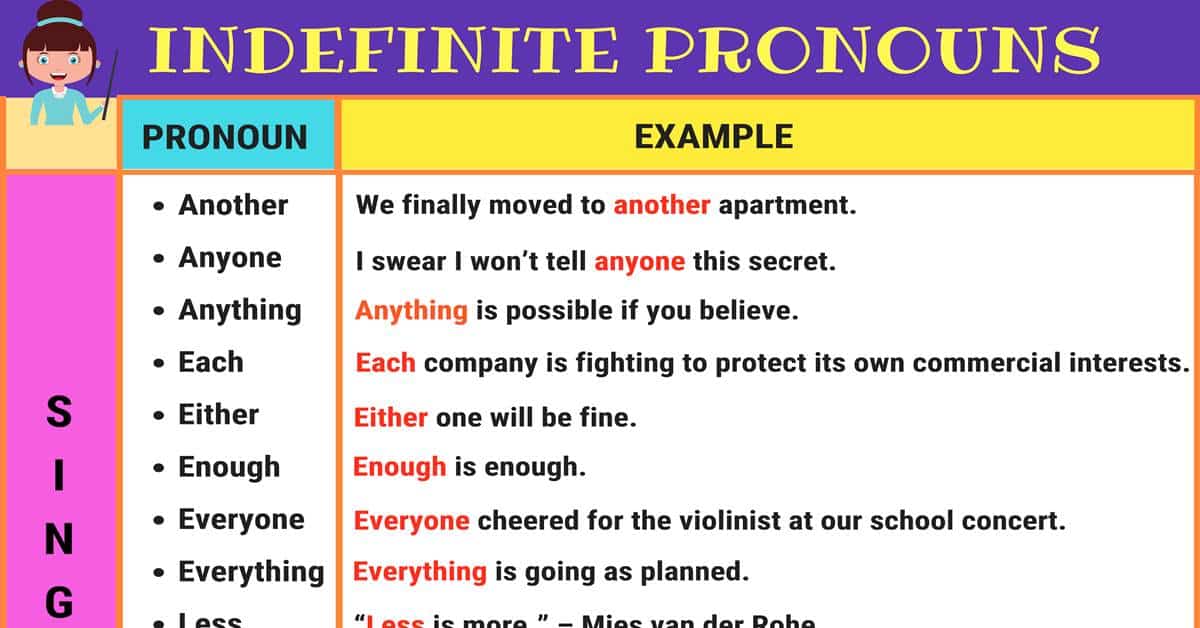
Pronouns What Is A Pronoun? Useful List, Types & Examples 7 E S L
I have seen all those pictures you sent to me. You all have to come to my sister's wedding. I called you yesterday to join us at the party. Someone, please call the Ambulance. Everyone wants to improve themselves. Examples of Pronoun in sentences: 1) She has many chocolates in her pocket. 2) She asked me to complete the project by the evening.

Pronoun Types of Pronouns with Useful Examples Pronouns List • 7ESL
Examples: First-person pronouns in a sentence I. 'm not sure what you mean by that.. If we work hard, the prize could be ours.. If you ask me, we just have to trust ourselves. Second-person pronouns. The second-person pronouns also do not vary based on gender, only the reflexive form varies based on number, and the subject and object forms are the same. This makes them the least variable set.

Pronoun Examples Sentences In English EduForKid
A pronoun is a word such as "I," "what," "anybody," "this," or "it" that is used in place of a noun to refer to something or someone. Pronouns are used in a similar way to nouns, but their point of reference is much more general. Pronouns are used for a variety of reasons—mainly to avoid repeating the same noun over and over when referring more than once to the same thing.

20 Examples of Personal Pronouns In Sentences EnglishTeachoo
A pronoun is a word that stands in for a noun, often to avoid the need to repeat the same noun over and over. Like nouns, pronouns can refer to people, things, concepts, and places. Most sentences contain at least one noun or pronoun. People tend to use "pronouns" to mean personal pronouns specifically, but there are many other kinds of.
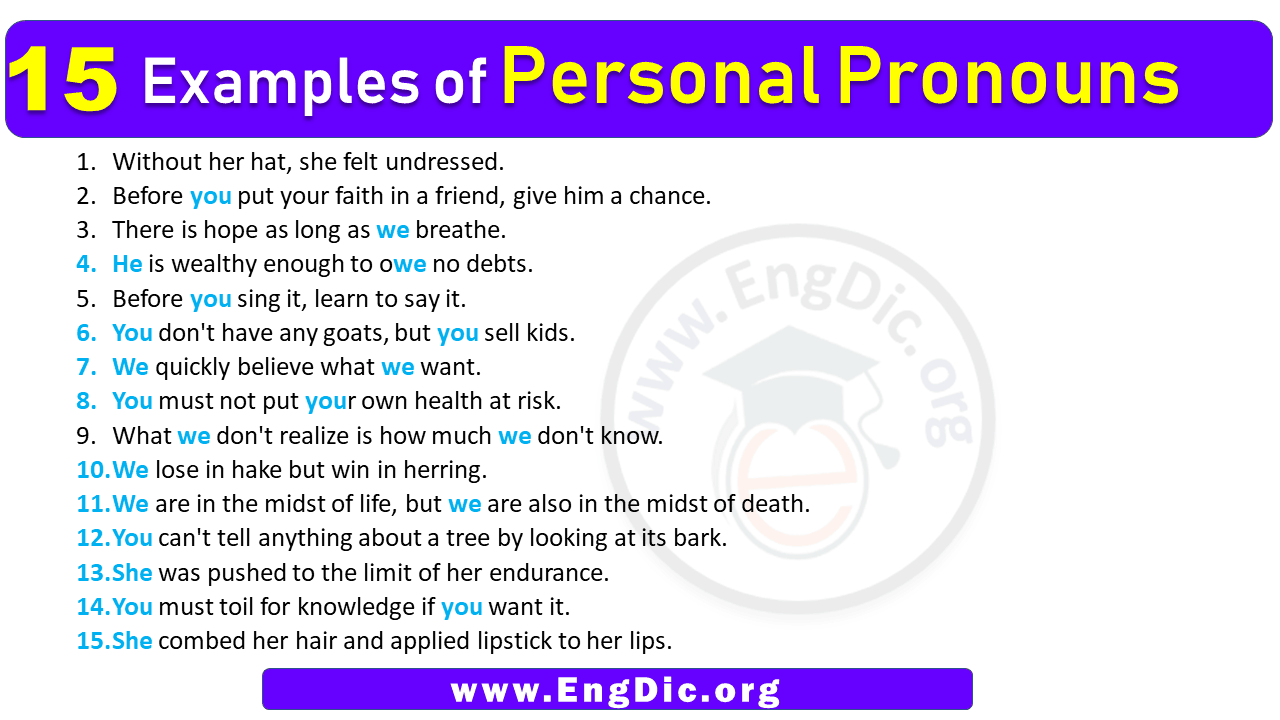
15 Examples of Personal Pronouns in Sentences EngDic
The pronoun refers to its antecedent. A pronoun helps us avoid unnecessary repetition in our writing and speech. In other words, words that can be used instead of a noun are called pronouns. The word "pronoun" means "for a noun". Let's understand pronouns with the help of a these example sentences: Look at Mike. Mike is a good boy.

Pronoun Archives » EnglishGrammarPage
An easy way to determine whether you should use who or whom in a sentence is to answer the sentence's question by substituting another pronoun that is affected by case. With the new pronoun in place, determine whether the sentence still makes sense. For example: He mailed this package. The package was sent to him.

English Study Here
A pronoun is part of speech that takes the place of a noun (person, place, thing, or idea) or noun phrase. Pronouns function as nouns; they can be subjects, direct objects, indirect objects, objects of a preposition, and more. The noun the pronoun refers to is called the antecedent: Ian enjoyed New York so much that he decided he would visit.

10 examples of pronouns in a sentence English Vocabs
Relative Pronouns Example Sentences. 20. "The teacher who sat next to me is very sweet.". 21. "You should never play with that cat. It is a mean cat." (The speaker knows only one of the cats in question, so it is a safe assumption that "it" is a bad cat.) 22. "I love the color which you chose for your new car.".
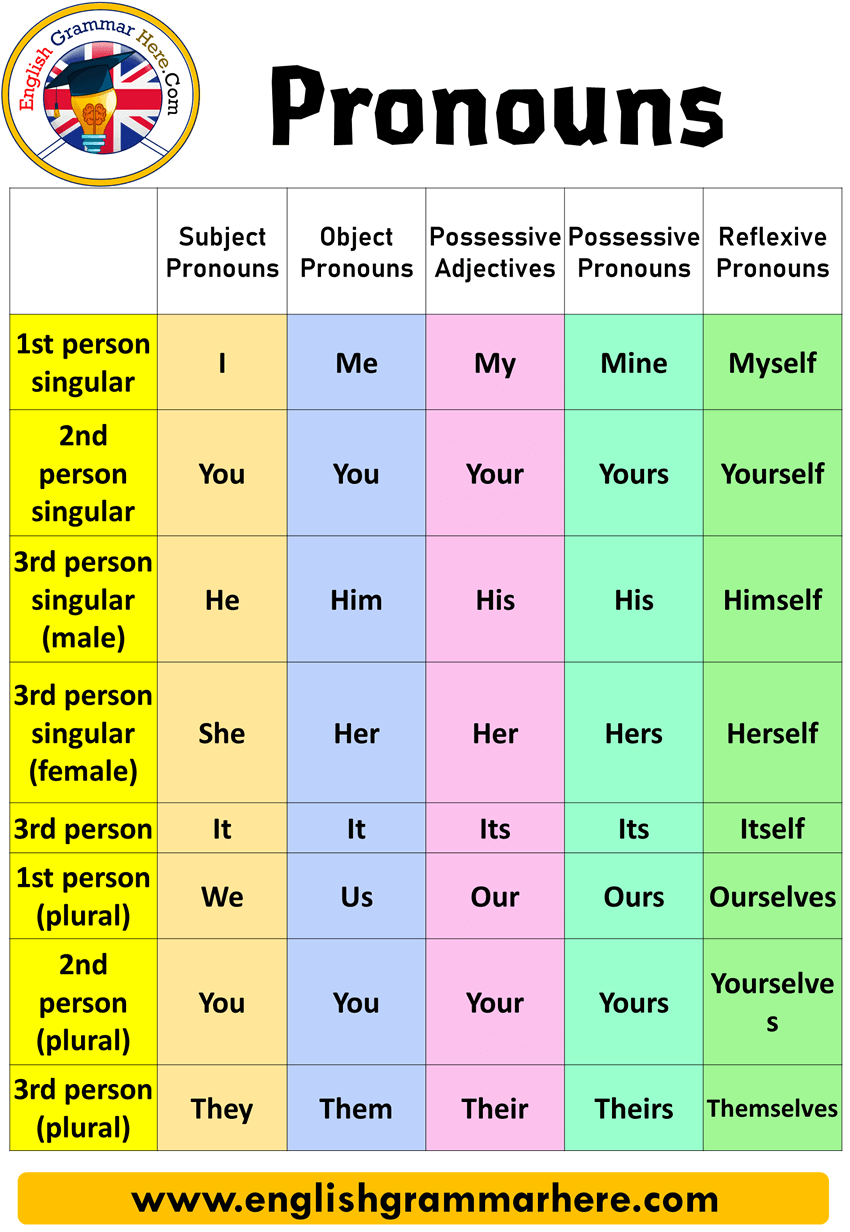
20 examples of pronouns in a sentence English Grammar Here
Relative Pronoun examples. The book which you gave me is lost. I want the boy that did it. I know the man who came. This is the cat which I saw. The baby who is was crying is not quite. Small pass the examination, which pleased everybody. It was raining heavily, which kept us Indoors. This is the book that I saw in the library.
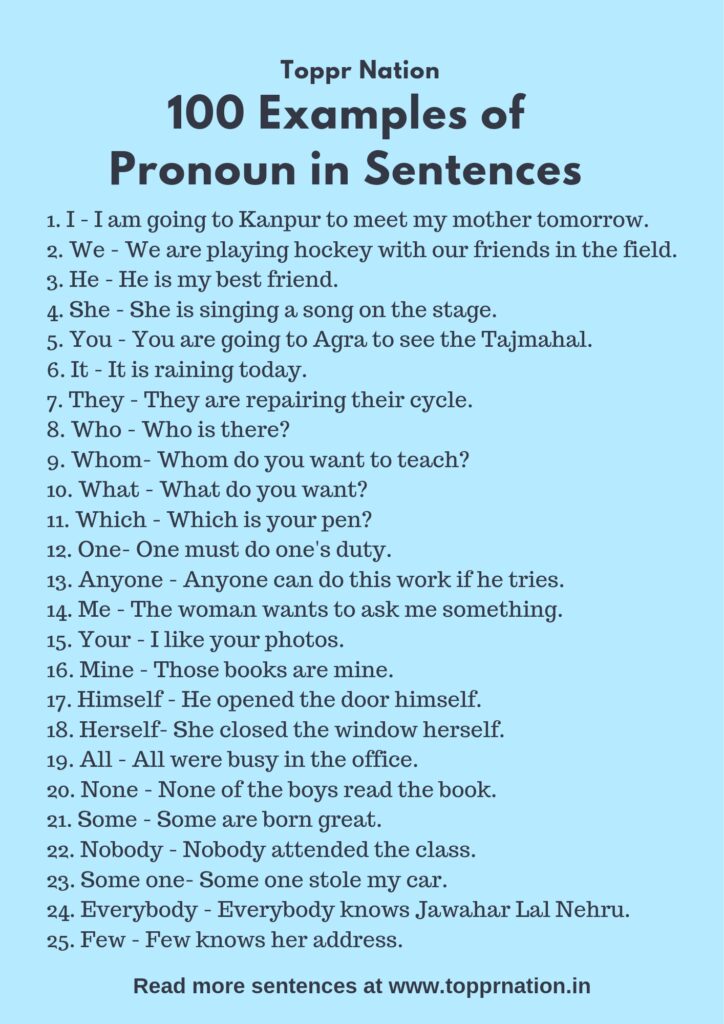
100 Examples of Pronoun in Sentences
These are collective nouns, abstract nouns and concrete nouns. A collective noun is a collection or a group. A murder of crows. A wild pack of dogs. A concrete noun is something physical, or real. I have a cup of coffee. I heard some music. An abstracts noun is something we cannot perceive.
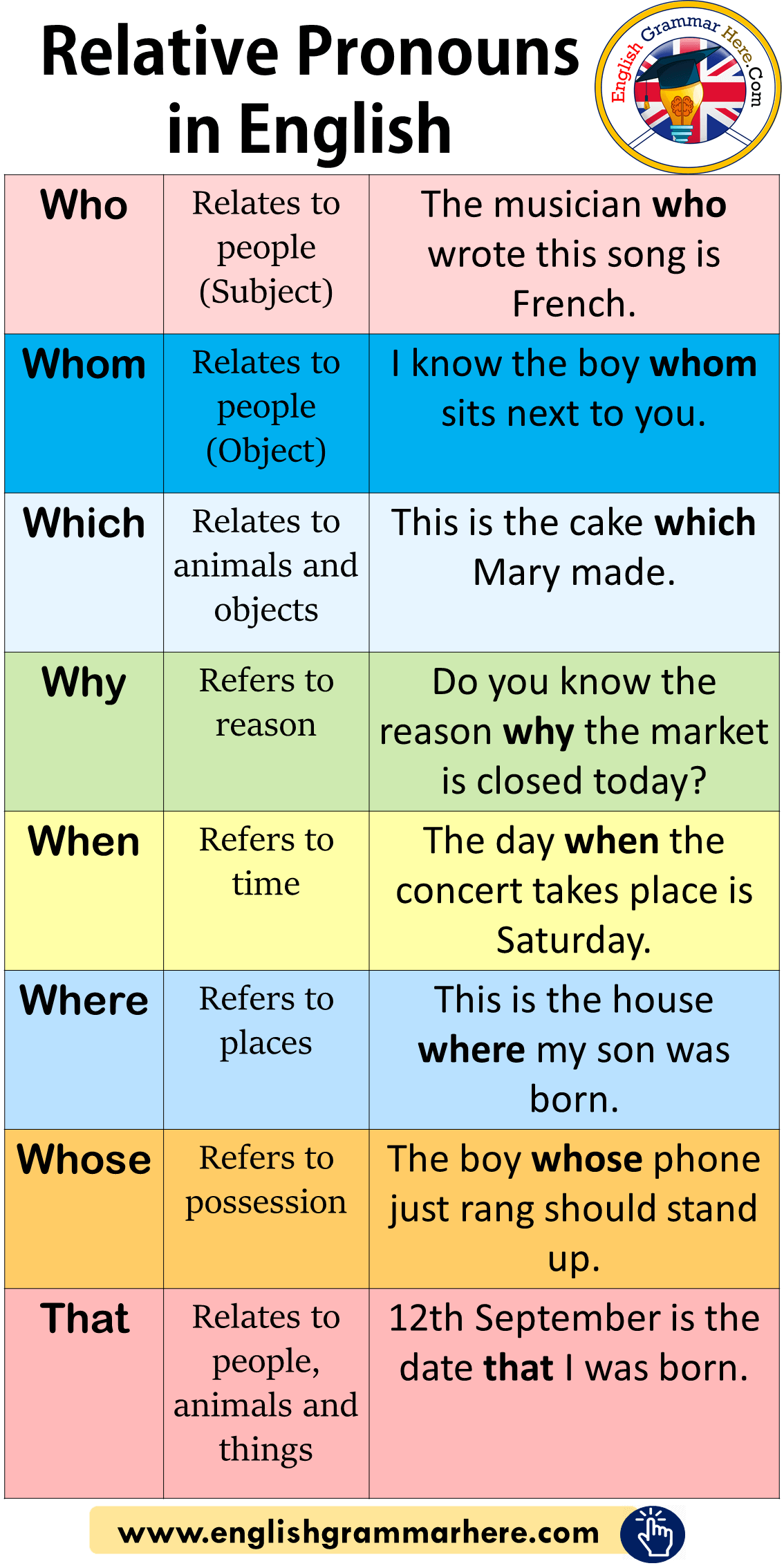
Relative Pronouns in English, Meaning and Example Sentences English Grammar Here
A pronoun is defined as a word or phrase that is used as a substitution for a noun or noun phrase, which is known as the pronoun's antecedent. Pronouns are short words and can do everything that nouns can do and are one of the building blocks of a sentence. Common pronouns are he, she, you, me, I, we, us, this, them, that.
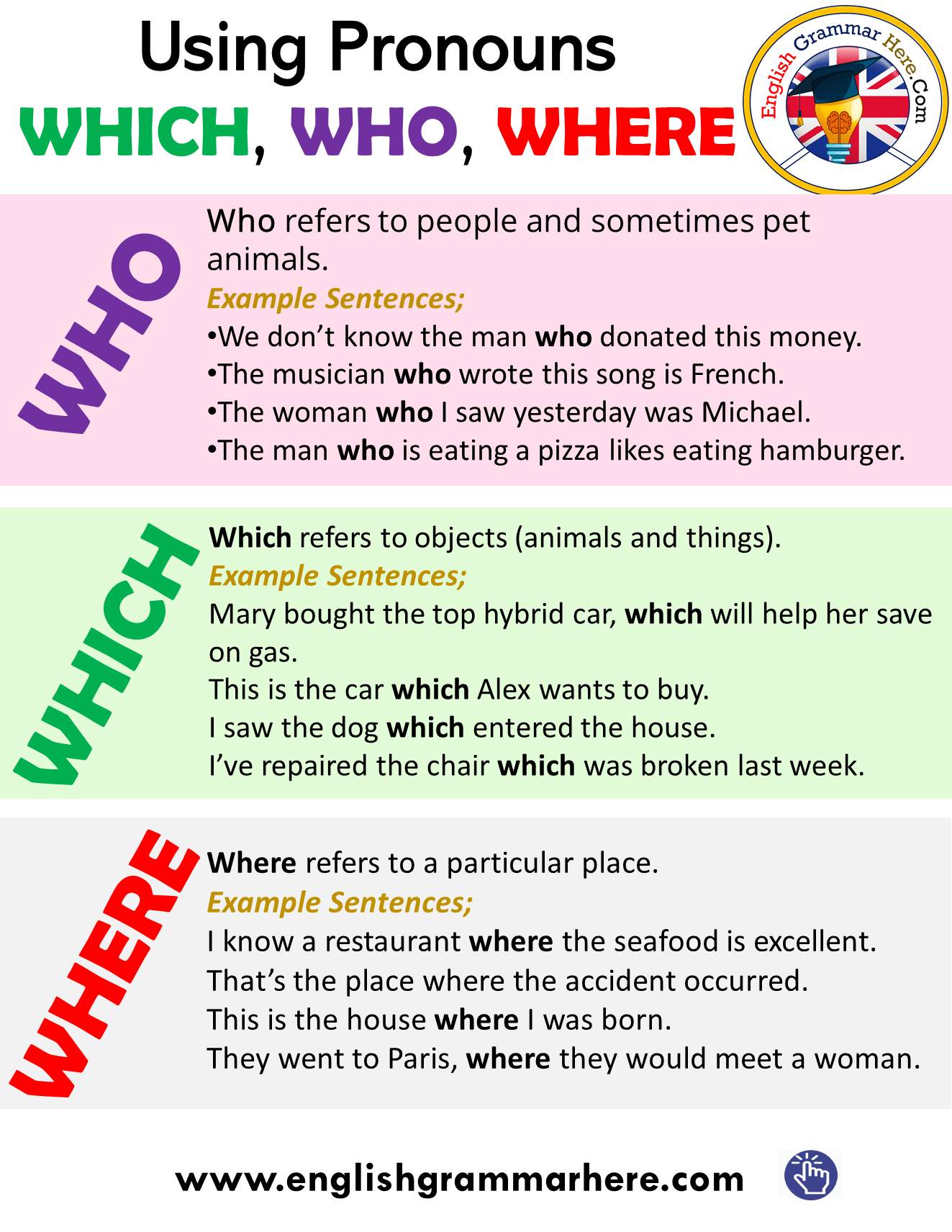
20 examples of pronouns in a sentence English Grammar Here
Most sentences contain at least one noun or pronoun. For example, the sentences below contain anywhere from one to three nouns. Examples: Nouns in a sentence The dog . ran very fast. June is my favorite month. Teachers emphasize the importance of grammar. Nouns are one of the main types of words in English, along with other parts of speech such.
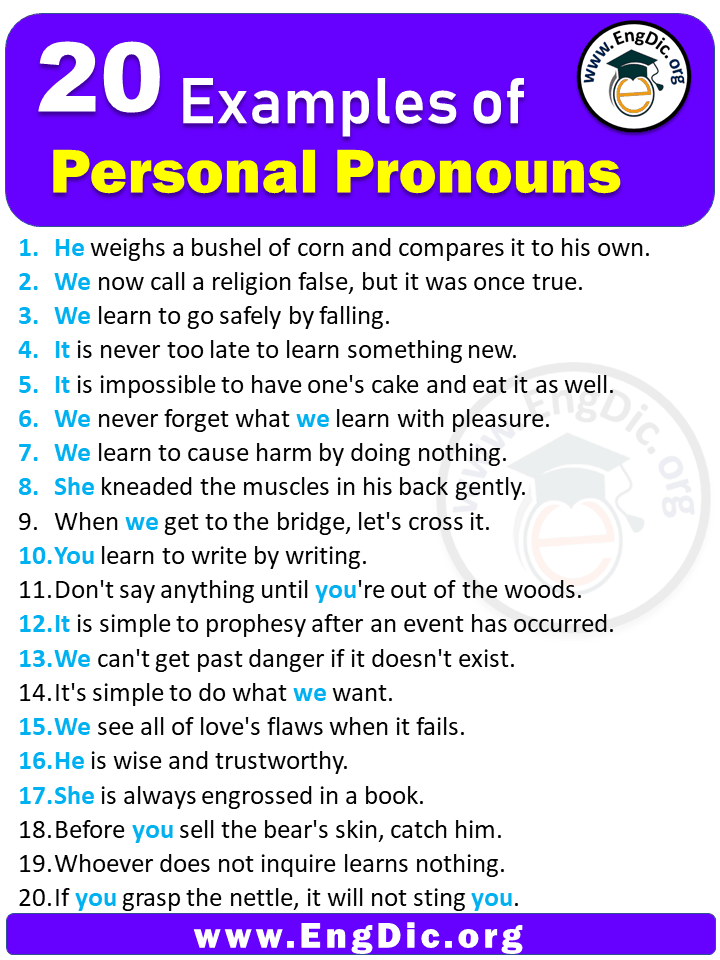
20 Examples of Personal Pronouns in Sentences EngDic
Here are 20 examples of pronouns in a sentence; Was there anyone you knew at the school? Would you like something to drink? Someone knows where she is. I learnt Spanish by myself. You can get a driving license, if you are 18. The soldiers killed him. They killed him. She is the best basketball player in the team. I've lost my umbrella. I can.

20 examples of pronouns in a sentence English Vocabs
We use pronouns every day. Even the word "we" is a pronoun! Learn about the types of pronouns with examples of each, and how to use them in sentences.

90 examples of pronouns in a sentence English Vocabs
Singular examples: Shelly wished that she was more outgoing.; The mailman his final package that day.He was tired and ready to go home.; As you can see, a pronoun and its antecedent won't necessarily appear in the same sentence. Plural examples: The teachers decided to strike.They conferred with the union to draft a list of demands.; As if waiting for this precise moment, the neighborhood.
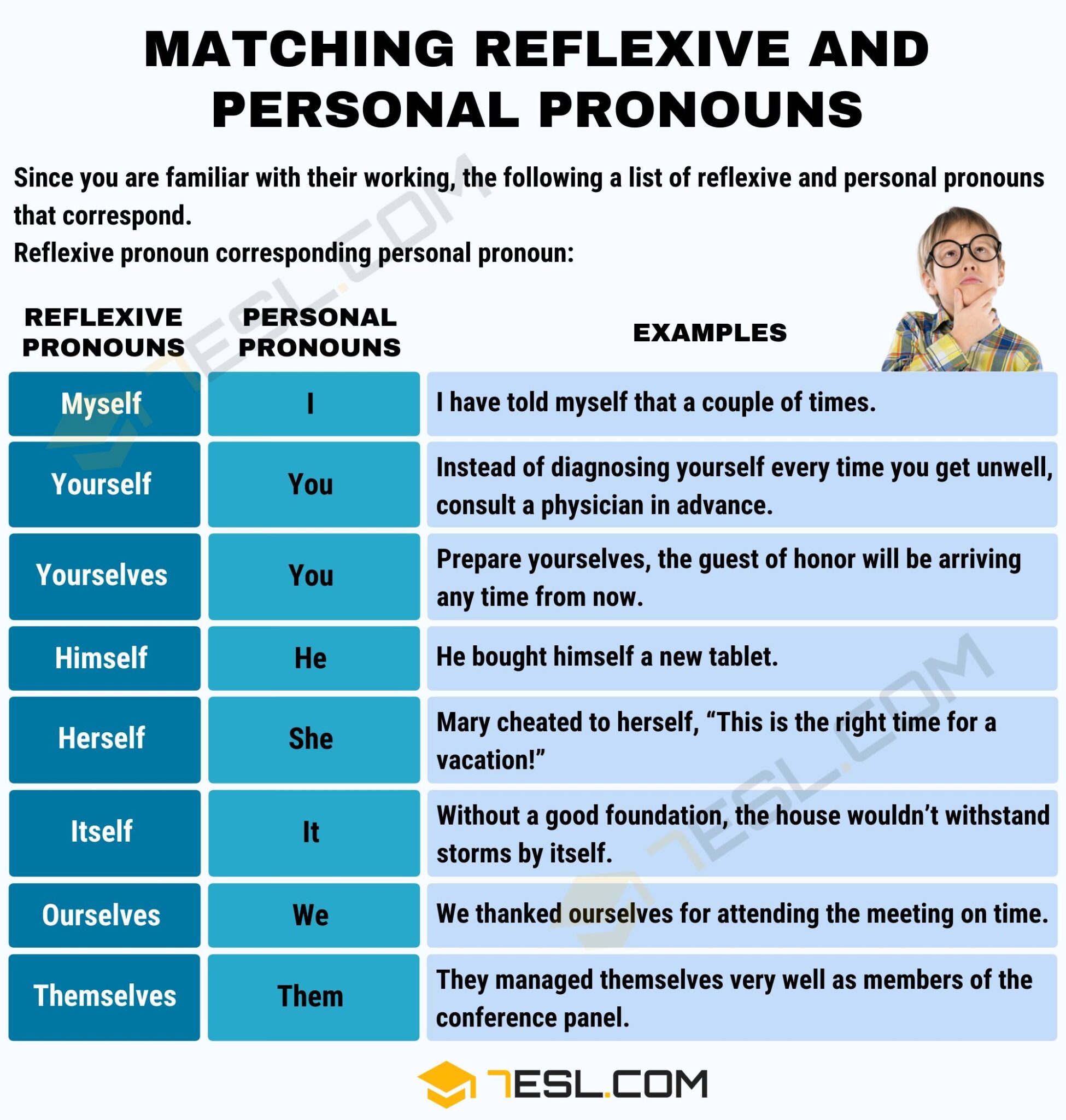
Reflexive Pronoun Definition, List and Examples of Reflexive Pronouns • 7ESL
Like nouns and other pronouns, indefinite pronouns have the grammatical property of numbers. This means that when an indefinite pronoun is the subject of a sentence, you need to know whether it is singular or plural so that you can be sure it's in subject-verb agreement with the sentence's verb. Most indefinite pronouns are singular, but.